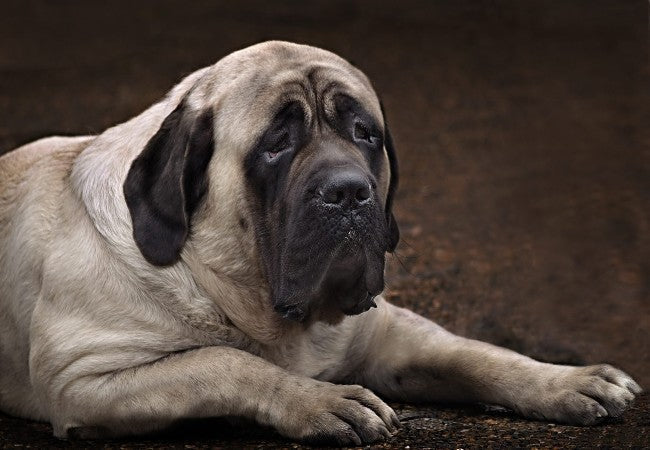ChatGPT said: Mastiff 2025: Gentle Giant Guardian Temperament & Care 🐶✨

In this article
ChatGPT said: Mastiff 2025: Gentle Giant Guardian Temperament & Care 🐶✨
By Dr. Duncan Houston BVSc
Introduction 🌟
The Mastiff—often called the “gentle giant”—is one of the largest and most devoted dog breeds, tracing back to ancient Molossian war and guard dogs from thousands of years ago. Despite their immense size, Mastiffs are calm, affectionate, and protective family companions when given proper structure and socialization.
1. Size & Physical Traits 🐾
- Stature: Males can reach 30–31 in tall, females around 27 in.
- Weight: Typically 120–230 lb (55–105 kg), with record-breaking individuals reaching over 300 lb.
- Appearance: Massive head with broad, short muzzle, droopy ears, heavy bone structure, and a short, dense coat in colors like fawn, brindle, and apricot—always featuring a dark mask.
2. Temperament & Personality ❤️
- Docile and dignified, often described as calm “nanny dogs”—gentle with children but their large size means supervision is crucial.
- Loyal and protective—Mastiffs form deep bonds with their families and act as natural guardians.
- Reserved with strangers; early socialization helps prevent overprotectiveness.
- Low-energy indoors—many are content lounging after a daily walk.
3. Grooming & Drool Management ✂️
- Coat care is minimal—brush weekly to control moderate shedding.
- Bath every 6–8 weeks or when needed; wipe folds and facial wrinkles weekly to avoid infection.
- Drooling is common—have drool mats or towels handy and clean around the mouth daily.
- Don’t forget regular nail trims, ear inspections, eyes cleaning, and dental brushing several times per week.
4. Exercise & Lifestyle 🏡
- Energy level is low to moderate—they benefit from a 30–60 min walk daily but tire easily due to size.
- Not built for intense endurance—prefer leisurely strolls and shaded play.
- Ideal environments: homes with space and calm routines; apartments can work if exercise is met.
5. Nutrition & Feeding 🍽️
- High-quality large-breed diet is essential; puppies require slow & steady growth to protect joints.
- Adults eat 6–8 cups per day in divided meals to reduce bloat risk.
- Use slow feeders to prevent gulping; monitor weight closely and adjust portions to prevent obesity.
6. Health & Lifespan 🩺
- Lifespan ranges from 6–12 years, averaging around 10–11 years with proper care.
- Common health issues:
- Hip & elbow dysplasia—screen via OFA/PennHIP.
- Bloat/GDV—high risk in giant deep-chested breeds; consider prophylactic gastropexy.
- Elbow hygromas from hard surfaces.
- Eye issues: ectropion, entropion, cataracts, PRA.
- Cancer is a leading cause of death—lymphoma, osteosarcoma are common.
- Recommended screenings: orthopedic, cardiac, ocular, and routine vet checks.
7. Training & Socialization 🎓
- Beginning with puppy classes is vital for basic obedience and social exposure.
- Mastiffs are intelligent but can be stubborn—gentle, consistent, and reward‑based methods work best.
- Use long training sessions to discourage jumping or leash-pulling.
- Frequent socialization prevents excessive guarding behavior.
8. Family Fit & Environment 🏡
- Perfect for families with older children—size makes unsupervised toddler interaction risky.
- Adaptable across indoor and fenced outdoor spaces; requires climate control and comfortable surfaces.
- Generally good with other pets if raised together; strong guardianship may lead to unpredictability without training.
9. Pros & Cons ⚖️
- Pros: Gentle, loyal, protective, minimal grooming.
- Cons: Short lifespan, drooling, health expense, size management, and bloat risk.
10. Adoption vs. Breeder Advice 🌟
- Rescue Mastiffs and senior giants are wonderful options—research reputable Mastiff rescues and shelters.
- If purchasing, choose breeders who conduct health clearances (hips, elbows, cardiac, eyes).
- Puppy prices vary widely ($1,500–4,000); ongoing health costs are significant.
11. FAQs ❓
- Do Mastiffs drool a lot? Yes, drooling is common, so a drool towel is handy.
- Is a Mastiff good with kids? Yes—gentle, but supervision is essential due to size.
- Do they need lots of exercise? No—moderate daily activity suffices.
- Are Mastiffs apartment-friendly? They can be if space and exercise are adequate.
12. Ask A Vet,🐶
- Ask A Vet: Tap experts for bloat prevention, joint health, drool-causing skin care, and cancer screening.
13. Final Thoughts ✅
The Mastiff is a majestic, loving, and intelligent guardian—ideal for families seeking devotion and presence. Their monumental presence demands responsibility but rewards with unparalleled loyalty. To help your Mastiff thrive, visit AskAVet.com and download the Ask A Vet app for reliable care and expert guidance.






